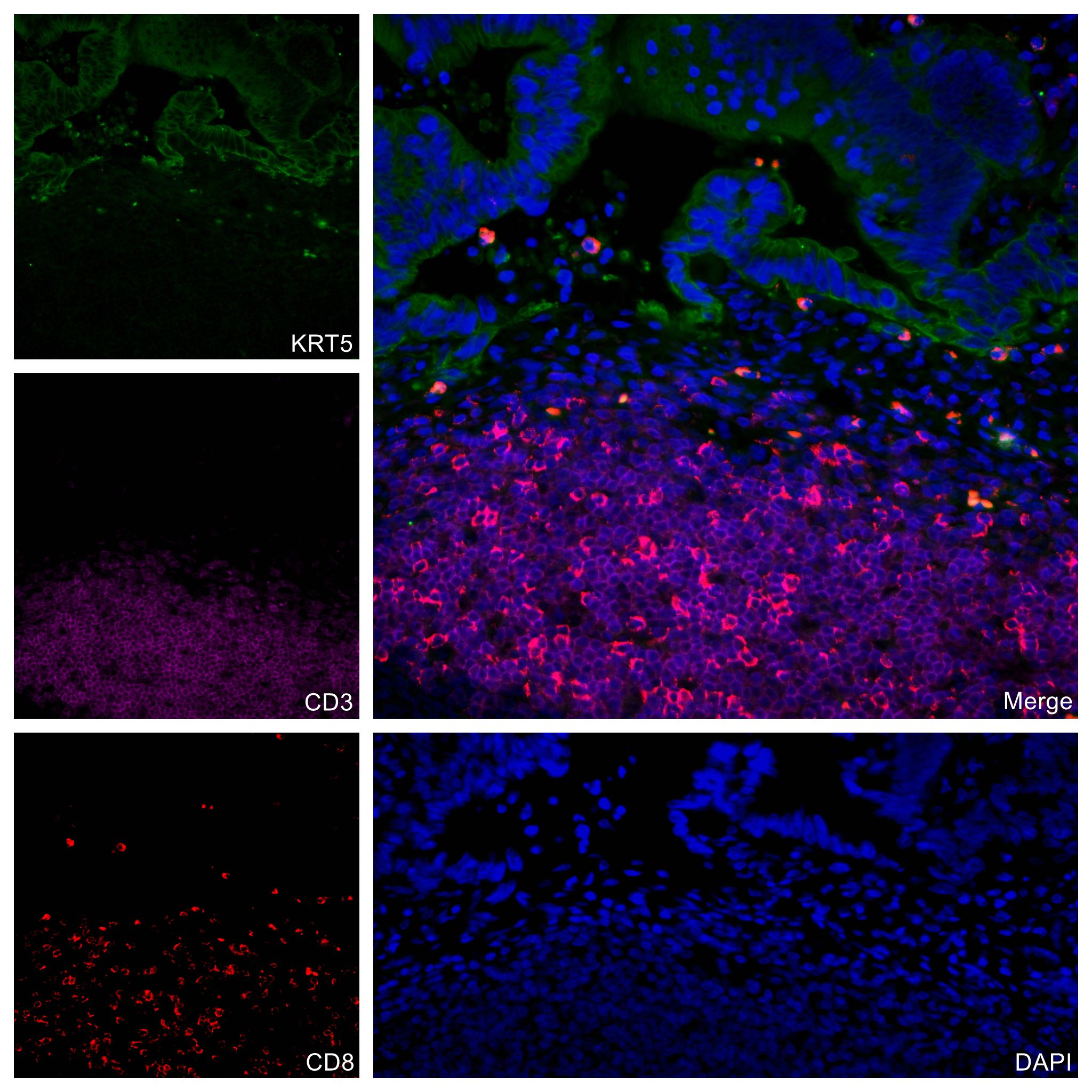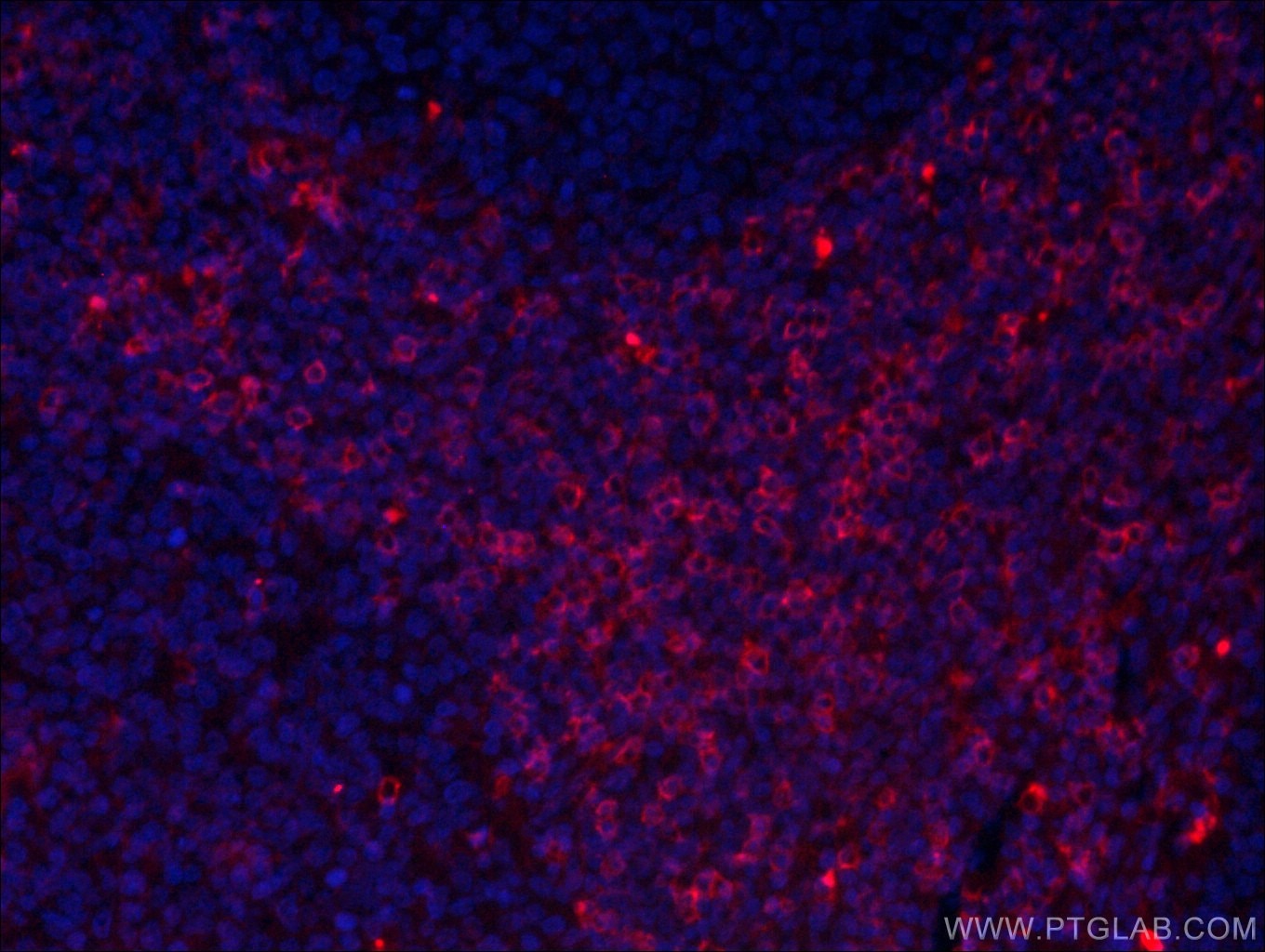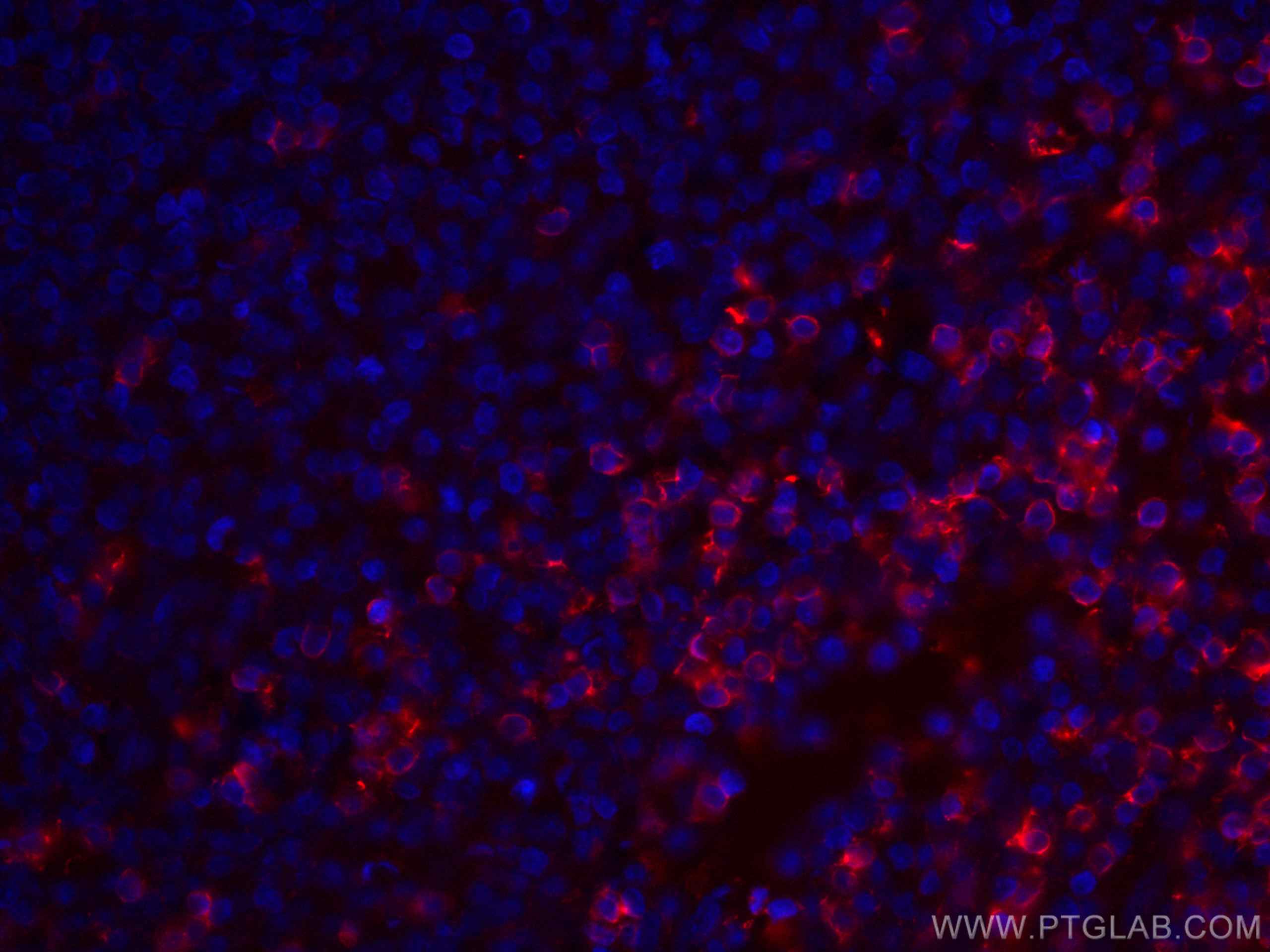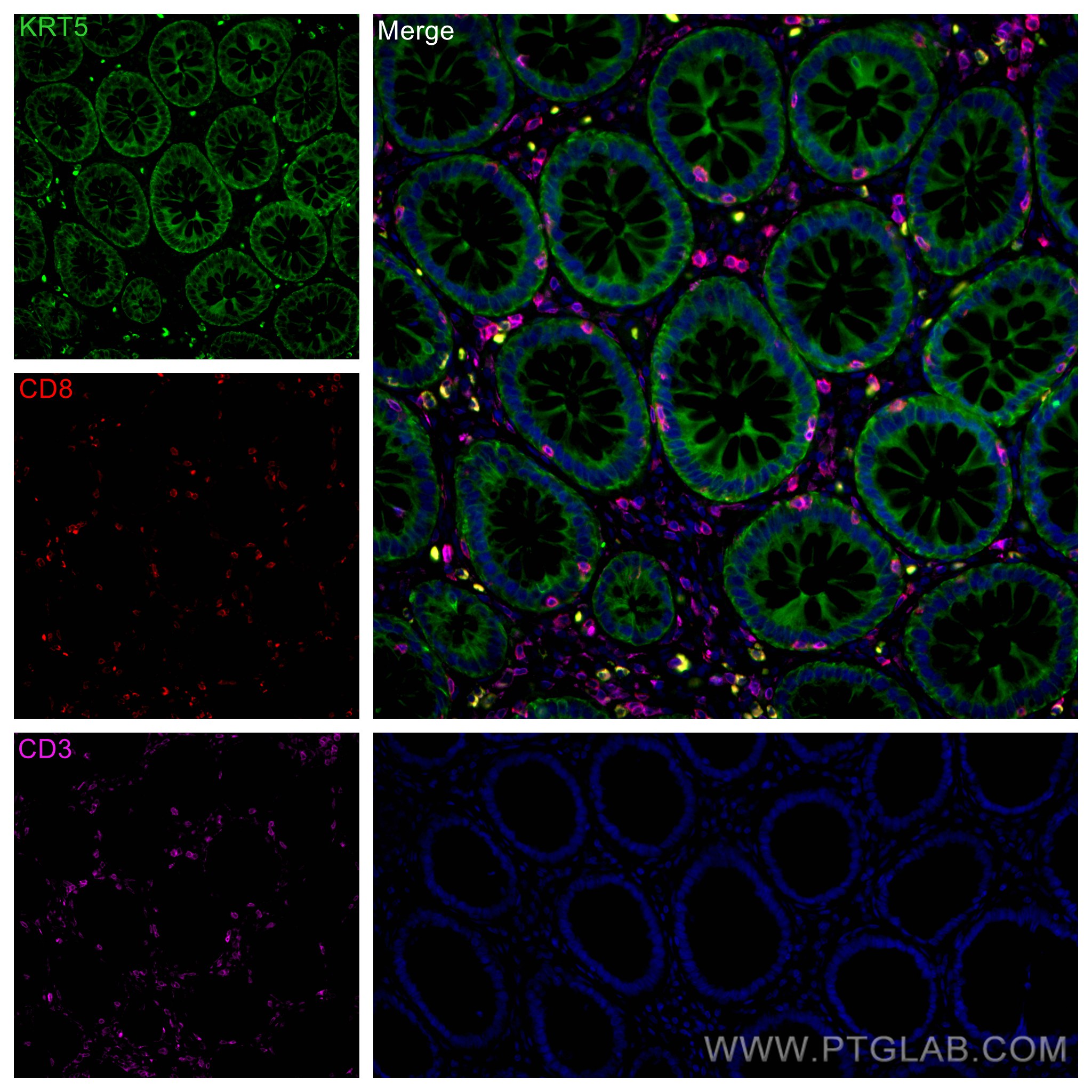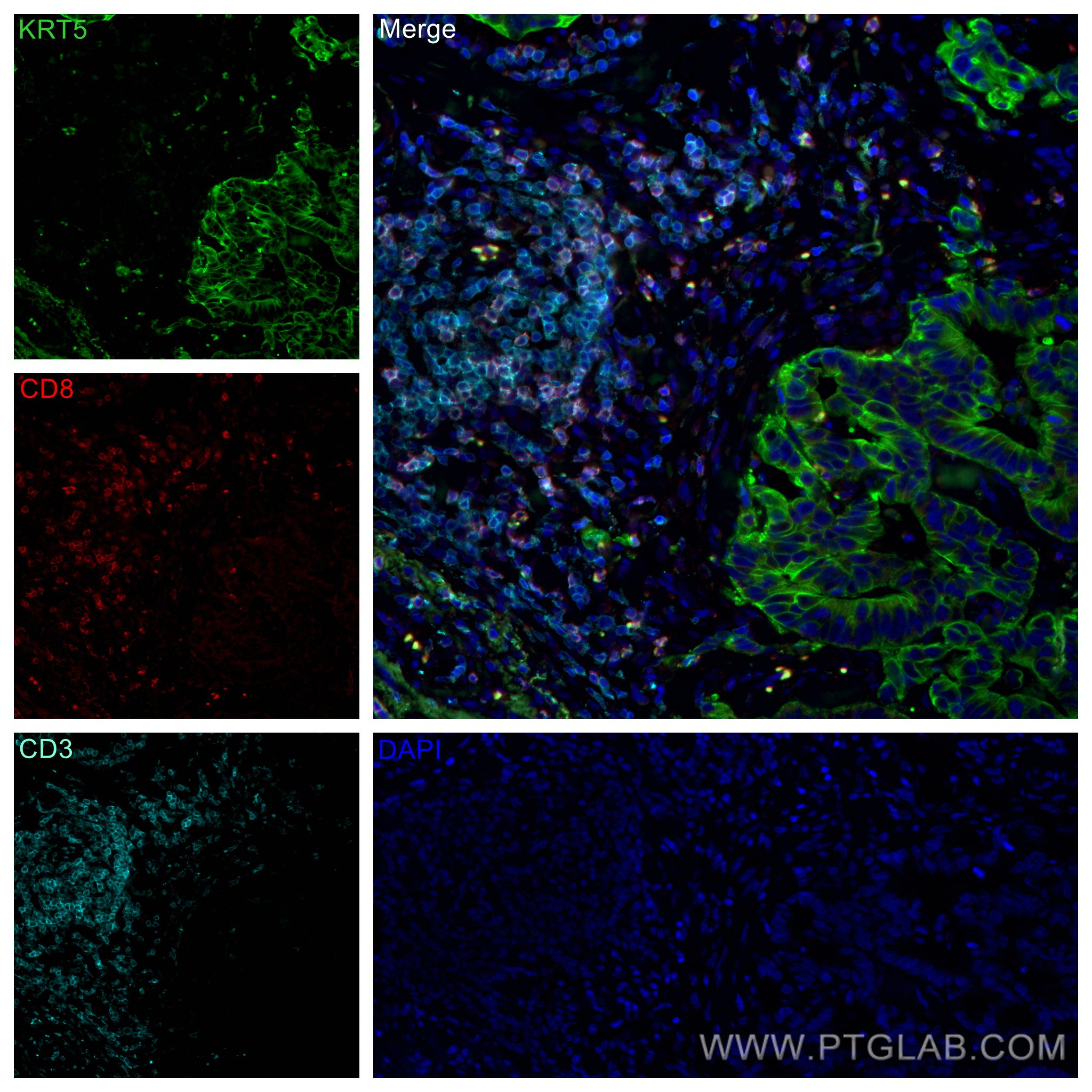Tested Applications
| Positive IF-P detected in | human appendicitis tissue, human tonsillitis tissue, human colon cancer tissue |
Recommended dilution
| Application | Dilution |
|---|---|
| Immunofluorescence (IF)-P | IF-P : 1:50-1:500 |
| It is recommended that this reagent should be titrated in each testing system to obtain optimal results. | |
| Sample-dependent, Check data in validation data gallery. | |
Product Information
CL594-66868 targets CD8a in IF-P applications and shows reactivity with human samples.
| Tested Reactivity | human |
| Host / Isotype | Mouse / IgG1 |
| Class | Monoclonal |
| Type | Antibody |
| Immunogen |
CatNo: Ag11111 Product name: Recombinant human CD8A protein Source: e coli.-derived, PET28a Tag: 6*His Domain: 23-183 aa of BC025715 Sequence: QFRVSPLDRTWNLGETVELKCQVLLSNPTSGCSWLFQPRGAAASPTFLLYLSQNKPKAAEGLDTQRFSGKRLGDTFVLTLSDFRRENEGCYFCSALSNSIMYFSHFVPVFLPAKPTTTPAPRPPTPAPTIASQPLSLRPEACRPAAGGAVHTRGLDFACDI Predict reactive species |
| Full Name | CD8a molecule |
| Calculated Molecular Weight | 235 aa, 26 kDa |
| GenBank Accession Number | BC025715 |
| Gene Symbol | CD8A |
| Gene ID (NCBI) | 925 |
| ENSEMBL Gene ID | ENSG00000153563 |
| RRID | AB_2883630 |
| Conjugate | CoraLite®594 Fluorescent Dye |
| Excitation/Emission Maxima Wavelengths | 588 nm / 604 nm |
| Form | Liquid |
| Purification Method | Protein G purification |
| UNIPROT ID | P01732 |
| Storage Buffer | PBS with 50% glycerol, 0.05% Proclin300, 0.5% BSA, pH 7.3. |
| Storage Conditions | Store at -20°C. Avoid exposure to light. Stable for one year after shipment. Aliquoting is unnecessary for -20oC storage. |
Background Information
CD8 is a transmembrane glycoprotein that is predominantly expressed on the surface of cytotoxic T cells, and can also be found on natural killer cells, cortical thymocytes, and dendritic cells. CD8 serves as a co-receptor for the T cell receptor (TCR). Both CD8 and TCR recognize antigens displayed by an antigen presenting cell (APC) in the context of class I MHC molecules. CD8 plays a role in T cell development and activation of mature T cells. This antibody is raised against 23-183 aa of human CD8a, the alpha chain of CD8 molecule.
Protocols
| Product Specific Protocols | |
|---|---|
| IF protocol for CL594 CD8a antibody CL594-66868 | Download protocol |
| Standard Protocols | |
|---|---|
| Click here to view our Standard Protocols |

